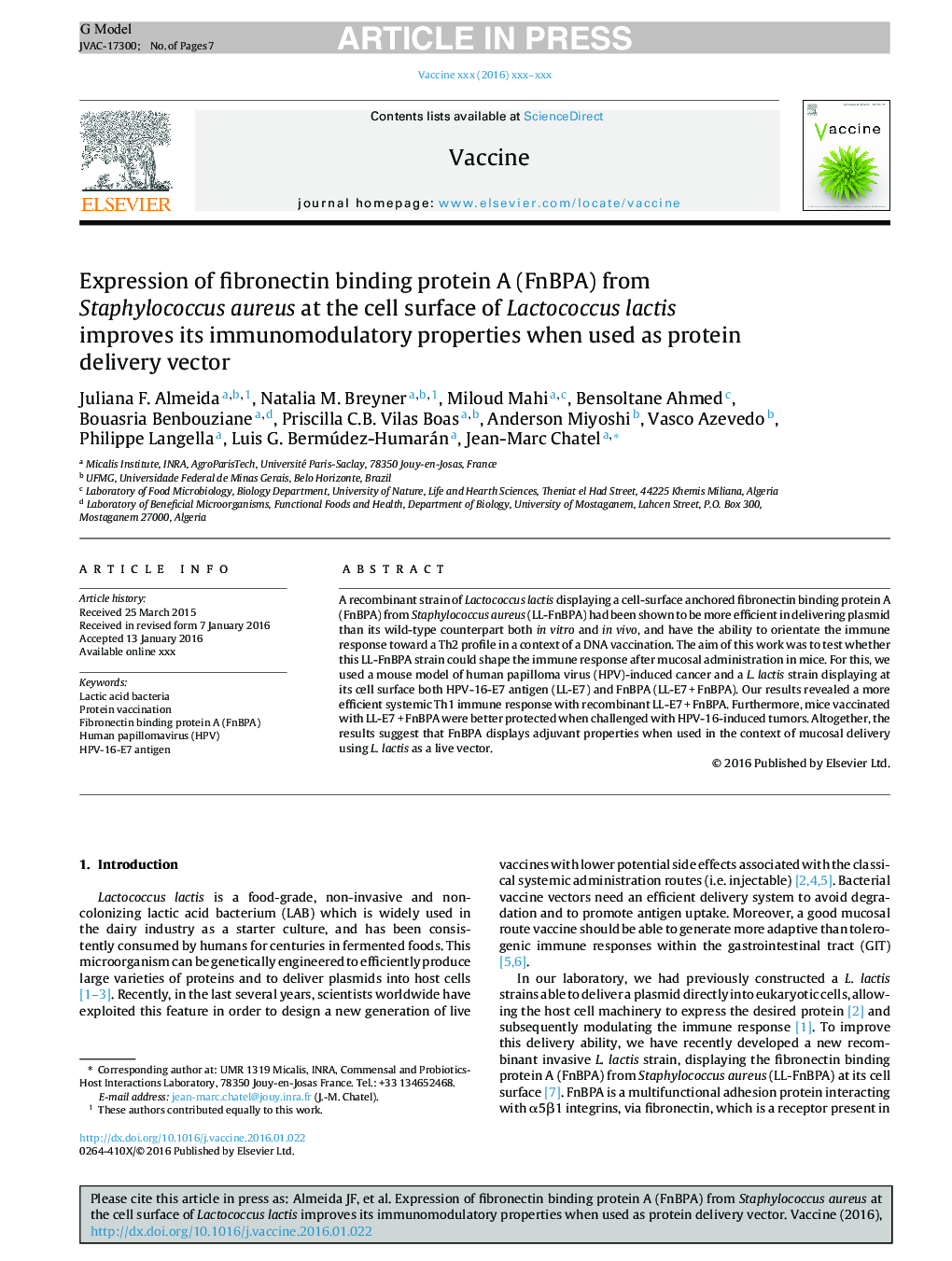| Article ID | Journal | Published Year | Pages | File Type |
|---|---|---|---|---|
| 10963103 | Vaccine | 2016 | 7 Pages |
Abstract
A recombinant strain of Lactococcus lactis displaying a cell-surface anchored fibronectin binding protein A (FnBPA) from Staphylococcus aureus (LL-FnBPA) had been shown to be more efficient in delivering plasmid than its wild-type counterpart both in vitro and in vivo, and have the ability to orientate the immune response toward a Th2 profile in a context of a DNA vaccination. The aim of this work was to test whether this LL-FnBPA strain could shape the immune response after mucosal administration in mice. For this, we used a mouse model of human papilloma virus (HPV)-induced cancer and a L. lactis strain displaying at its cell surface both HPV-16-E7 antigen (LL-E7) and FnBPA (LL-E7Â +Â FnBPA). Our results revealed a more efficient systemic Th1 immune response with recombinant LL-E7Â +Â FnBPA. Furthermore, mice vaccinated with LL-E7Â +Â FnBPA were better protected when challenged with HPV-16-induced tumors. Altogether, the results suggest that FnBPA displays adjuvant properties when used in the context of mucosal delivery using L. lactis as a live vector.
Related Topics
Life Sciences
Immunology and Microbiology
Immunology
Authors
Juliana F. Almeida, Natalia M. Breyner, Miloud Mahi, Bensoltane Ahmed, Bouasria Benbouziane, Priscilla C.B. Vilas Boas, Anderson Miyoshi, Vasco Azevedo, Philippe Langella, Luis G. Bermúdez-Humarán, Jean-Marc Chatel,
